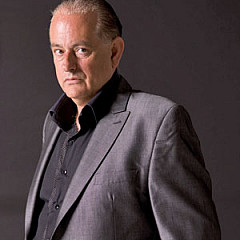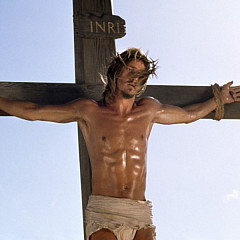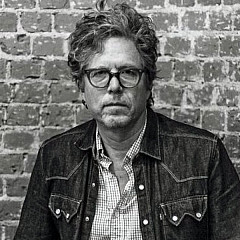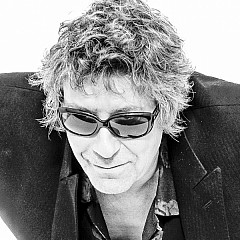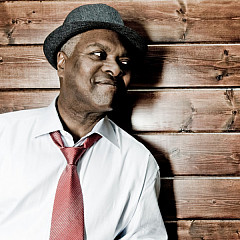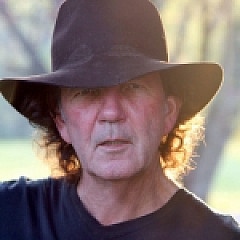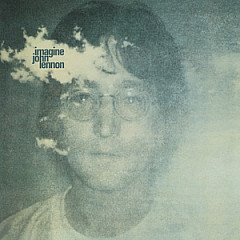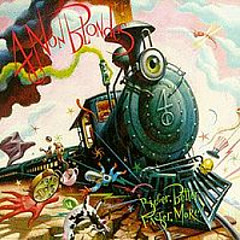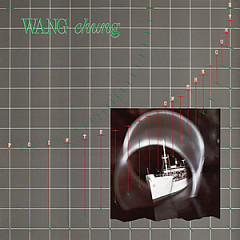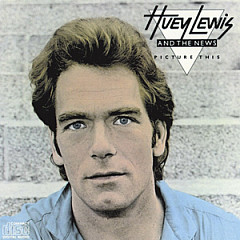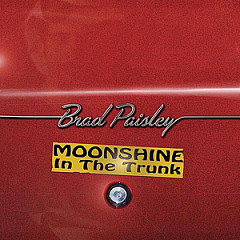 Envy Of None: Alex Lifeson, Alfio Annibalini, Andy Curran, Maiah Wynne
Envy Of None: Alex Lifeson, Alfio Annibalini, Andy Curran, Maiah WynneBut don't be fooled into thinking this is a Lifeson-led solo project, as it turns out it is a collaboration between all of its members: bassist Andy Curran (of the Canadian band Coney Hatch), producer/engineer Alfio Annibalini, and singer Maiah Wynne.
And instead of simply following in Rush's stylistic footsteps, Envy Of None is much more electro-based and showcases the vocal talents of Wynne. But on such tunes as "Spy House," "Look Inside," and "Western Sunset," Lifeson's guitar is certainly spotlighted.
Shortly before the album's release, both Wynne and Lifeson were up for discussing each track on the band's debut.
Never Said I Love You
Wynne: Most of the songs on the record had a different approach to the lyrics – depending on what Andy sent me. Sometimes, he would send me a chorus idea along with music, and sometimes just a word or two, and sometimes it was just a song title. So, with "Never Said I Love You," he had a portion of the chorus already written. And I wrote the verses and did a little bit of rearranging of where the chorus happened.The lyrics were a little confusing for me for this one – when he wrote the chorus. So, I tried to relate it to a relationship, but maybe a modern-day relationship with casual dating and hook-ups where you don't realize you have intense feelings for somebody until it's too late, and you've lost them and you never told them that you really love them, and now they're gone.
Lifeson: This was an early song that Alf and Andy started working on. By the time it came to me, everything had been done, and I didn't really see a place for me to play on it. Alf's guitar parts were great. Everything about it sounded very complete. The only one area that I thought was weak at that time when I first received it was in the chorus. It seemed to me that this was such a catchy chorus with such a great vocal line and lyric, that it really needed to lift at that point. And it's quite a traditional chordal pattern.
So, my initial response was to put big acoustics on it. The electrics were already there – they were playing a part that was very "strummy." So, with the acoustics playing in eights and sixteenths, it was creating a little more of this rhythmic pulse – that I thought was very effective for that song or that piece of music.
Other than the middle eight were I play a finger-picking guitar part and answer, that's really all I thought it needed from the guitar department.

Shadow
Wynne: "Shadow" was the first song that I worked on with Andy. And that was before I knew that Alex was going to be a part of any of it. So, we had a slow and easy process of sending stuff back and forth. Andy had a short idea of lyrics for that, which I think it was just "You're my shadow." I related that to people who can be pretty overbearing and you don't realize the negative effect they have on your life until you're out of that situation, and that lingering effect of negativity can follow you wherever you go – until you are able to step away from it.For "Shadow," I loved the music to it, and that was the first one Andy had sent me. Andy had sent me a bunch of bed tracks and that was the one that I immediately started having lyrical and vocal ideas for. It's still one of my favorites. I love how haunting and spooky it is.
Lifeson: "Shadow" has got a really unique vibe to it. It's very modern-sounding but really rhythmic. Great dynamics in it – it comes right down, it comes right up, it pulses. For me, it was kind of an acoustic guitar approach, and there's a little bit of backwards guitar stuff that I used that process fairly often on this record, actually. But I thought the choruses could lift with the jangly sort of acoustic guitar sound.
And I used the National tuning, which is kind of like the octave strings of a 12-string on a 6-string guitar. So, it already is up and jangly, and it's in that range. And I capo'd it, so it was even up a little higher and more scratchy. Imagine being scratched on your back very lightly with some very nice nails. [Laughs]
Look Inside
Wynne: "Look Inside"... it's funny, because Alex and I weren't sold on it when we first heard the bed track for it. It was sort of the drums and some bass – there wasn't a lot going on. It's such a slow song. But as Alex started to add these guitar textures and layers, it really brought a lot of dimension to the song.We play a lot with adding rhythm – the vocal layers add some of that rhythm and Alex really brought a lot of rhythm in between those beats because it is a slow-moving song. And it really brought a lot of dimension – there's so many beautiful and interesting layers in there. Andy I think doubled his bass in there – it really moves you. I'm glad we kept working on it. It turned out really interesting and it's one of the most moving pieces on the record.
Lifeson: That is exactly how I feel about that song. It started out very fragmented. It was very difficult to envision what it could become. The parts – at that time, in its infancy – just didn't have body or grabbing power. And I scratched my head, and thought, "How are we going to make this thing work?" But as Maiah pointed out, the things that we started to gradually add, the areas that we thought were weak and we strengthened, really helped to bring the song to life.
Then, David put real drums on it along with a little bit of sampled drums and that really added a lot. And he wasn't flashy with his drums – he kept time. So it was the feeling of a live drummer but with a very programmed performance, and it left lots of room for the vocal. Because that vocal really needs space – it sits on top of everything.
It's so dreamy and the song is so trippy and psychedelic in a way but so dynamic. The verses in particular have all this space, and the bridge has power, and then the chorus just really drives it home. It's really remarkable how that song came together. I think for both of us, it's probably one of our favorite songs on the record.
Wynne: It really is. And lyrically, it mirrors the emotion of the song. That one, I just had the name "Look Inside" to go off to write the lyrics. It really is about introspection and finding the worst parts of yourself and working on them. I think in life, it's a slow and sometimes grueling process to work on those parts of yourself to try to be a better person. The song is dark and grueling, but also rewarding in the end. I love that song.
Liar
Wynne: "Liar" was one that I had the least influence on. I think Andy had already written the song. It was fully realized, and they actually had a different singer on it. When I got it, I rewrote some of the lyrics – just the verses, really. So it was something that I could relate to a little bit more. I found inspiration after I went to jury duty for the first time and had a very chilling interaction with the woman who was on trial. So, that was my inspiration for the lyrics to that song. But it's very catchy and was very fully realized by the time I heard it.Lifeson: That was one of the first songs that Andy sent to me. The original singer for the track, she filled in to put vocals and guitar on these ideas, just to get a reference to see how they were coming together. I love the fact that Maiah's lyrics are about jury duty, and not about some bad relationship with this jerk guy who's lying all the time! It would be more typical. But that's the amazing thing, presenting it to an audience that would have their own impression of what the lyrics are or what a song is. That's a really successful song when it's like that.
Spy House
Lifeson: "Spy House" was one of the first songs that I wrote – post-Rush tour period. I wrote that, "Kabul Blues," and "Western Sunset." And "Spy House" was just a little exercise for me. It was a two-and-a-half-minute song of just getting into this little groove and playing, and it has the one guitar solo that's on the record. And then it fell into Maiah's lap to write lyrics for it, which she based on connecting to the title, which is not an easy job.Wynne: It's a fantastic instrumental piece all on its own. And it was a challenge because it's short and it doesn't really have repeating sections, so trying to find vocals that felt like they complemented and didn't distract or take away, I feel like we landed on something that sits right in there and supports what's happening instrumentally.
I love the moment when that guitar solo comes in and getting to add some of those "ooo"s right behind it. To support that drive into the chorus was really fun. But lyrically, "Spy House" was a bit of a challenge to find topics, so I ended up creating a character for that song. It's a very paranoid character who is very in love with someone.
Dog's Life
Lifeson: "Dog's Life" came towards the end. It was the one track that had more of a traditional kind of rock vibe to it. Joe Vitale played drums on it – session drummer – with drum fills. Very dynamic and very powerful.Wynne: I let myself get a little bit bigger on that song and took my inspiration from work... and overwork, which I think a lot of people can relate to.
Kabul Blues
Lifeson: "Kabul Blues" started out as a blues song with that Eastern influence. When I wrote that, it was an exercise in having a traditional blues song but having some of these Eastern influences in it, as well as all this trippy soundscape-y stuff going on in the background.As that song developed, it became more rhythmic. A lot of deep, rhythmic things on multi-layers. Then Maiah wrote lyrics that are fantastic, and her performance is so amazing on that song. I just added the guitar around her vocals for the most part.

Old Strings
Wynne: "Old Strings" is a song I wrote a few years ago on my own, and I presented a demo of it to these guys. It's very different – a lot heavier and double-timed. Andy and Alf worked hard to half-time it. The vocals are the same speed, but they half-timed it with this beautiful instrumentation that really supported the vocal. It really brought a lot of intimacy and beauty to the song.It turned out so gorgeous. And the guitar part that Alex put in there is so amazing. It has this delicate dance with the vocal that is perfect. I love how it turned out.
Dumb
Wynne: "Dumb" is very poppy. Andy had some inspiration – he wrote the chorus for that and he said his inspiration was from watching a cartoon character wear a dunce cap. I added verses and connected to it on a more personal level. But the song itself is great. Very poppy and very fun.Lifeson: Poppy... and yet pretty intense and pretty heavy. Really cool arrangement. A lot of great parts, a lot of great dynamics in it, and really a lot of fun.
Enemy
Wynne: "Enemy" is great. Very heavy. It was the first heavy song we did together. It was an early one.There's a lot of back and forth between Andy and I on lyrics for that. The way it turned out, I was able to channel a little bit more vocally and be a little bit more aggressive. It was a great experience working on that song with these guys.
Lifeson: Also a very dynamic song. A lot of cool dynamics down low and menacing and dangerous and in-your-face and powerful.
I think Maiah's performance – although I would argue that every performance on her part on this album is spectacular – there's something about "Enemy" that just really reaches in and grabs your heart and rips it out. There's a lot of heaviness in the music, but it's the vocal that scares the crap out of you.
But, that's all of us together. In a lot of ways, I really feel a lot of satisfaction with what I did as a guitarist on these songs, just trying to make them great, trying to get out of the way of things, and trying to be as invisible and camouflaged without giving up on what I thought were valuable things to the development of the songs. I guess that's the sign of a songwriter rather than a guitarist."
Western Sunset
Lifeson: "Western Sunset" was written early on – in 2016 I started working on that. When we knew about Neil's illness, I was visiting him. It struck me, sitting on his balcony, watching the sunset. That song is a beautiful echo of that moment, the sunlight filtering through the trees as the sun was going down, and that whole idea of the sunset being the end of the day. It was very poignant, and it just resonated with me and became that thing to me for him.April 6, 2022
Here's the link to buy or stream the Envy Of None album
Further reading:
Classic Interview with Neil Peart
Rush Songfacts entries
Talking Rush with author Martin Popoff
Interview with Rik Emmett of Triumph
Interview with Andy Summers of The Police
Photos: Richard Sibbald
More Song Writing

